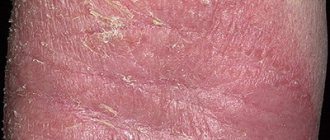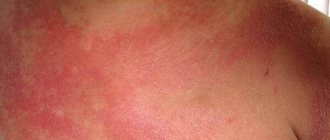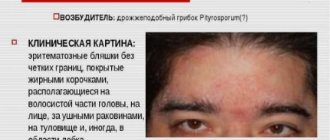In childhood, an allergic reaction often occurs. It can be triggered by food, medications, or pets. In such a situation, parents have to more carefully select food for their children. It is also worth noting that not all vitamins will be suitable for allergy sufferers. It is necessary to choose the right drug so as not to provoke an exacerbation of the disease. In this case, it will be possible to avoid serious negative consequences and improve your health. Doctors recommend certain vitamins for children with allergies that are likely to be well accepted by the body.
How to choose?
Vitamins for children with allergies
To choose the best option, you should pay attention to the recommendations:
- The ideal option would be to choose a vitamin and mineral complex for a child with allergies together with a medical specialist. The doctor will be able to detect the cause of the allergic reaction and prescribe the optimal vitamin complex. Do not forget about the fact that substances are not excreted from the body and over time begin to negatively affect it; for this reason, it is better to find out the rules of administration from an allergist.
- Doctors believe that the main source of vitamins of all groups is food. If the cause of an allergic reaction in your baby is one of the foods, pay special attention to what your child eats. Make a diet so that the allergy sufferer’s body receives all the vitamins and does not come into contact with the allergen. The diet must include dairy products, vegetables, fruits and meat.
- When choosing a vitamin-mineral complex, before starting to take the tablets, you should study the instructions; the composition should not contain allergens. Attention should be paid to this point if the tablets contain synthetic components - dyes.
- After taking vitamins for the first time, you should monitor the child’s body’s reaction to the drug. The best option would be to take vitamins in the morning. This is explained by the fact that during the day the result of the intake will become visible. If the body’s condition worsens after taking the vitamin complex, stop taking it immediately.
Features of choice at an early age
For young children, you need to choose the right vitamins. It is important to consult a pediatrician or allergist to avoid mistakes. Doctors often note that the main source of vitamins is the food that the baby eats. If you have an allergy, you will have to choose your diet wisely.
When giving any complex, you will have to carefully monitor your well-being. You need to make sure that there is no immunopathological reaction. If alarming symptoms appear, then specific vitamins will have to be abandoned.
Before purchasing a specific drug, you should carefully read the instructions. It is important to make sure that the composition does not contain harmful additives. In this case, there will be a greater chance of avoiding negative consequences.
Vitamins for children from 2 to 12 months
Vitamins for babies
At this age, in some cases there is a need for vitamin complexes.
If the baby was breastfed, then the onset of an allergy may be due to the mother’s poor diet.
In this situation, it is worth contacting a medical specialist who will create an individual diet. If a child is breastfed, only hypoallergenic vitamin complexes may be suitable for him.
You should not decide which drug to use, you should entrust this to a medical specialist. It is impossible to determine the cause of the allergy at home; this is determined using diagnostic procedures in the laboratory.
One of the main conditions for a positive effect is daily intake of vitamins. You can't miss a single day. If there is no systematic approach to taking a vitamin complex, the effectiveness of taking vitamins is zero.
For children, it is better to purchase vitamin complexes that are available in powders; syrups contain some sugar.
Which group of vitamins is most important?
You need to pay attention to vitamins of group D. Doctors advise starting to take them from 2 months. This is explained by the fact that vitamins increase the baby’s appetite, strengthen the skeletal system, and make him sleep soundly.
Main indications for taking vitamins and dietary supplements for allergies

Some of the main indications for taking vitamins include:
- increased sensitivity to sunlight, heat, strong wind and frost (often manifested by a skin rash of varying degrees of location “urticaria”);
- hay fever (seasonal rhinoconjunctivitis) is the most common reaction to pollen of some plants;
- food allergy (develops as a result of the body’s inability to digest a product). One of the most common. It can appear either immediately after consuming the product or after some time as a result of the accumulation of substances in excess. For example, sugar, some types of protein;
- contact allergy - develops when in contact with an allergen. Most often, such a reaction develops to a cosmetic product, ultraviolet radiation, or animal hair.
Recommended Vitamins
Vitamin and mineral complex for children
- Children who are prone to allergies should take advantage of one of the vitamin-mineral complexes.
- VitaBears. This complex is available in the form of chewing plates. They contain only natural ingredients, there are no synthetic components. Each type of vitamin-mineral complex has its own clear focus. If the children's diet does not have enough iodine and zinc, you should purchase VitaMishkki Multi Plus. If you need to support the immune system, you should pay attention to Immuno Plus. If a child has vision problems, Focus Plus is an ideal option. The vitamin complex is recommended for use by children aged 3 years and older.
- Vibovit Baby. This vitamin and mineral complex contains 10 vitamins. Available in powder form, the complex is used in the form of a solution. It is great for babies aged 2 to 36 months. There are no synthetic additives, the only additional components are vanillin.
- Alphabet. A common vitamin and mineral complex in Russia. The manufacturer claims that the vitamins are hypoallergenic. This is explained by the fact that all components are distributed into groups, increasing the digestibility of each substance. For babies aged 18 to 36 months, the complex is available in powder form. Chewing plates are produced for children from 3 to 7 years old. For other ages, the vitamin complex is available in the form of tablets, just like the described vitamin complexes; there are no chemical additives.
If an allergic reaction occurs in your baby, do not delay. At this age, it is worth closely monitoring the health of the body, otherwise in the future it may be reflected in the form of serious complications.
What vitamins do doctors recommend taking to prevent and eliminate allergies?
Let us immediately note that eliminating the allergen and strengthening the body’s protective properties will help to qualitatively eliminate allergies. What exactly provokes an allergy can be determined independently or by contacting an allergist, who will prescribe a laboratory test for allergy tests. Today this is the most effective way to identify the “enemy”. Moreover, the number of patients who are allergic even to products that are not considered safe is growing.
Having eliminated the cause, you can begin to strengthen the protective properties of the body and health in general, normalizing all processes. For this, a specialist will prescribe vitamins.
Carefully! Without indications, you should not take vitamin and mineral supplements or minerals. For example, copper and iron are quite strong allergens if their amount in the body becomes excessive.
As a rule, a number of vitamins are prescribed, both in combination and separately, depending on the patient’s condition:
- Vitamin PP or Nicotinic acid is necessary for the metabolism of amino acids, fats, carbohydrates and proteins. It also has a beneficial effect on the condition of blood vessels, improves blood flow, and accelerates detoxification of the body. Considered an effective immunostimulant and modulator;
- Ascorbic acid is a powerful antioxidant that increases the body's resistance to free radicals. The vitamin is low-toxic and is not produced by the body, so it is difficult to “overdo” it. Destroys in water;
- Cyanocobalamin or vitamin B12 - has an antihistamine effect on the body, therefore it can significantly reduce sensitivity to popular allergens. Lack leads to stress;
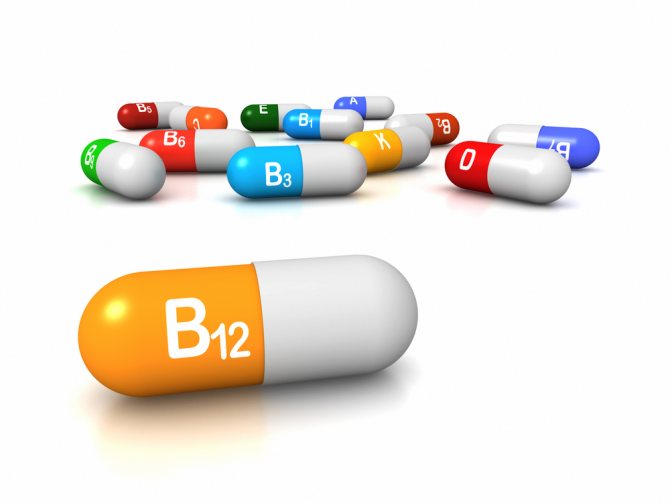
- Tocopherol or vitamin E is useful not only for the health of the skin and mucous membranes. It is also a strong antioxidant and can strengthen the body's immune system. Fights free radicals, strengthens blood vessels and capillaries. Helps eliminate rhinorrhea, including those of allergic origin;
- Pyridoxine or vitamin B6 is one of the main vitamins for the health of the thyroid gland and nervous system. Normalizes metabolic processes in the body and in the skin in particular;
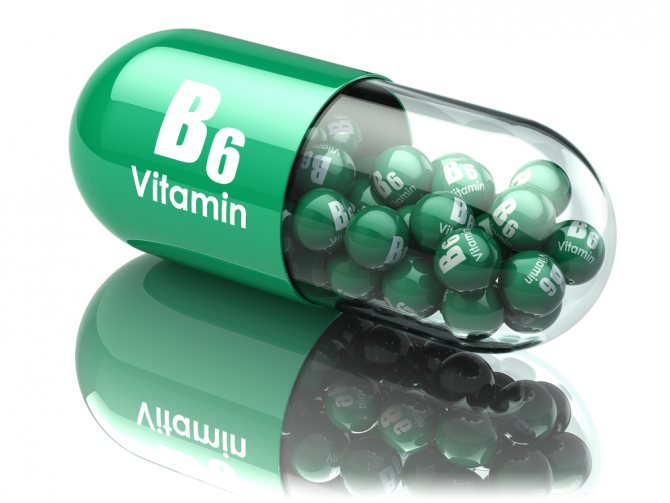
- Biotin or vitamin H is necessary for normal carbohydrate metabolism. Due to this, it is extremely necessary for diabetics and those who often experience fluctuations in blood sugar levels. If you consume foods with a high glycemic index, additional intake of this vitamin is recommended. Normal biotin content in the body improves the condition of the skin, hair and nails;
- Pantothenic acid or vitamin B5 is involved in all metabolic processes. It is able to increase the effectiveness of antihistamines, therefore it is always prescribed during a course of therapeutic antiallergic therapy.
Let us remind you once again that vitamins for allergy sufferers should be prescribed by a doctor. This is important because all these vitamins enter our body with food. Yes, not everything is absorbed, which is related to the quality of this food and the organization of nutrition in general, but still some part is absorbed. Therefore, excessive intake of tablet vitamins can aggravate the condition of an allergy sufferer and lead to death.
Preparations for restoring cellular metabolic processes
Single use of vitamin E for atopic dermatitis or the use of supplements with the addition of retinol, D, and group B substances is impossible without consulting a doctor. For successful therapy, complexes are often prescribed that are not used for the prevention of vitamin deficiency.
But multivitamins with enhanced composition are sometimes recommended by doctors (for example, a complex with an increased presence of group B). Among the standard complexes choose: “Vitrum”, “Complivit”.
"Picamilon" for the treatment of atopic dermatitis
Specialized vitamin complexes, which immunologists recommend drinking for atopic dermatitis, contain many unique substances. One of these remedies is Picamilon. It has increased effectiveness in treating the disease:
- belongs to the group of safe nootropics;
- regulates the functioning of the nervous system;
- can be used intramuscularly to increase efficiency;
- more effective than nicotinamide;
- quickly eliminates itching and other effects of atopic dermatitis.
Take the medicine 1 tablet 2-3 times a day. The course of treatment is limited to a maximum of 2 months. 10% 2 ml is administered intramuscularly for 1 month.
Vitamin D uses
Fat-soluble vitamin D regulates up to 200 genes in the human body. Almost always, a lack of a substance leads to the development of atopic dermatitis. There is a problem with this component in dermatitis caused by other reasons.
Fatty acid
When treating atopic dermatitis in adults and children, additional substances are often prescribed:
- linoleic acid – stops hyperemia and new rashes, itching, peeling;
- Oleic acid - used to block the release of histamine from cells, thereby reducing itching.
Acids are used mainly in capsule form along with other products - vitamin D, complex supplements.
To obtain the optimal amount of all minerals and vitamins, you must follow a diet rich in vegetable fats, lean meats, and sea fish. But allergenic foods must be minimized (for special indications, mushrooms, eggs, and berries are excluded).
Competent selection of vitamins after blood tests, adherence to the regimen and use of medications to relieve symptoms of atopic dermatitis is an effective approach to therapy with a minimum of side effects.
